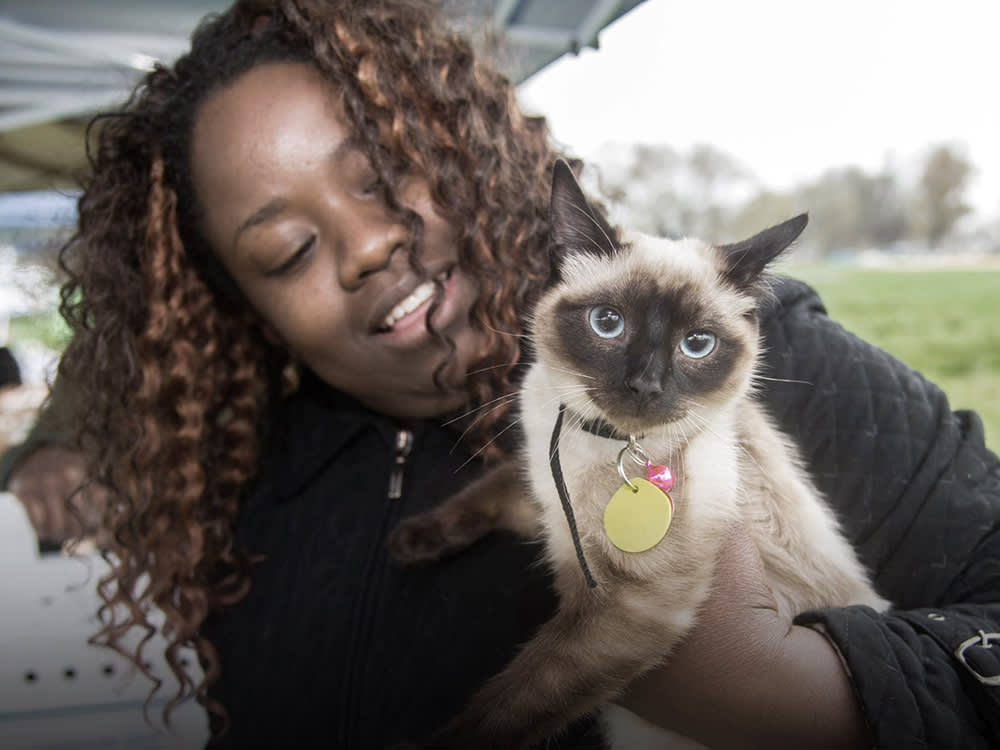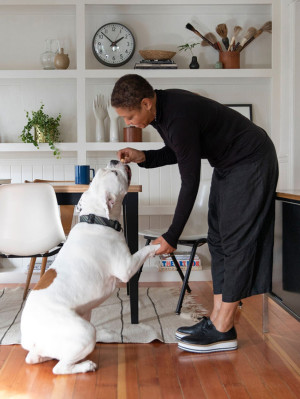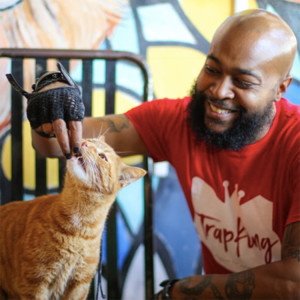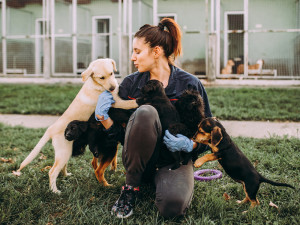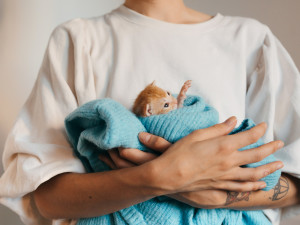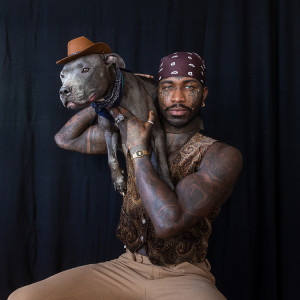CARE Is Amplifying BIPOC Voices to Keep People and Pets Together
“We don’t consider what we are doing animal welfare work. We are taking a holistic approach to well-being for animals and humans.”
When you think about animal movies, what pops into your head — Beethoven? Best in Show? Turner & Hooch? Now think about the people whose stories these films tell, and an unsettling trend starts to emerge: almost everyone in them is whiteopens in new tab.
From entertainment and advertising to rescues and groomers, there’s a stark lack of diversity across the world of pets. And that’s something the BIPOC-led CAREopens in new tab (or, Companions and Animals for Reform and Equity) is determined to change.
According to one studyopens in new tab, the animal-welfare world is 84 percent white, while less than one percent of its leadership is Black.opens in new tab This not only means millions of people don’t see themselves reflected in these organizations — it also means the biases in those groups never get addressed. A Harvard Project implicit-bias studyopens in new tab underscores the negative associations, attitudes, or stereotypes directed toward Black Americans, in particular. So as arduous as the adoption process can seem, it can be downright impossible for BIPOC, who’re often outright denied animal adoptions.
“We don’t consider what we are doing animal welfare work,” says Johnny Jenkins, CARE’s Chief of Staff and Research & Development. “We are doing human and animal well-being work. We are looking at the entire household, taking a holistic approach to well-being for animals and humans.”
How much do you spend on your pet per year?
CARE’s activism is disruptive in all the right ways. Their dedicated research division documents and quantifies social injustices, while the narrative team connects those stats to the real-life animal lovers experiencing these biases. In Minneapolis’ Little Earth Indigenous communityopens in new tab, for instance, CARE’s research teamopens in new tab worked with locals to better understand the needs of the community, and actually make sure they were involved in data-gathering at every step of the way.
That’s the real secret to CARE’s growing power: working with local activists to become leaders in the animal welfare world. According to Jenkins, 95 percent of these “proximate” leaders have limited exposure to animal welfare groups, so CARE, in turn, gives small grants, helps them network, and provides priceless legal assistance.
CARE is also finding creative ways to amplify BIPOC voices and reach new audiences to promote adoption, such as collaborating with up-and-coming rapper Dapper Dan Midasopens in new tab on a music video for the song “That’s My Dog.”
Also, they put money where their mouths are, thanks in part to donations from companies such as Maddie’s Fund, Petsmart Charities, and Tito’s Vodka. The organization’s CARE Center divisionopens in new tab has become an environmental-justice force in the making, pivotal in serving the underprivileged, especially those bearing the brunt of climate change. They have aided people in need of pet food, cat litter (including workshops on making your own cat litter hosted by activist Sterling “TrapKing” Davis), and spay-and-neuter clinics. According to the group, their goal is to “remove financial and transportation barriers and help ensure that people and their most treasured companions can stay together” — most recently in Kentucky, where several tornadoes devastated small towns.
For Black History Month, CARE launched the Dr. Jodie G. Blackwell Scholarship Fundopens in new tab to raise funds for African American veterinary students, noting that African Americans only represent two percent of the veterinary field. “There’s a lot of exciting opportunities to connect animal well-being to human well-being and improve the quality of life across the country,” Jenkins notes.
So, what can you do? A lot! You can start by applying for CARE’s Racial Equity, Diversity and Inclusion (REDI) certificationopens in new tab. You can also sign up for CARE’s action arm, the change maker’s circleopens in new tab. Or you can just donate directlyopens in new tab to support their important work, even specifying which of their divisions you prefer your funds support.
